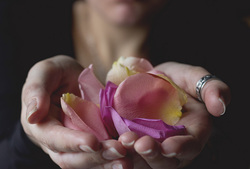
-African proverb
This might be a statement on human nature: how jealousy and grudging can overpower love, how most people in the end are self-interested. But I am reading this quote in a time when group hatred is pronounced and global. It rings in my ears as literal.
My forthcoming novel Without Shame is a push for religious tolerance. Which is something I thought - no matter what culture or sect you practice from - would be a favorable lens on Islam in a time where you see headlines like "Secularist blogger brutally murdered in Bangladesh - the fourth one this year by Islamic groups." But my eyes were opened to something the other week, and it has to do with the quote mentioned above.
I asked a Pakistani writer to review Without Shame, and after reading it, she declined. I believe she is Sunni, and she did not approve of my inclusion of Sufism and Bengali cultural practices, as she explained, "It's not mainstream Islam and many of their practices aren't backed by Quran and sunnah...there is no concept of evil or good spirits in Islam, or healing by chanting, etc. It is especially disturbing because at least some of the characters in the story (for instance Sajib) are religious and seem to have knowledge about their faith because they are educated, yet they are following and/or condoning these practices." She demanded I change the book or at least make a note that the book is not talking about true Islam, stating that non-Muslim readers "will take it as face value and grow in their belief that Muslims are weird, irrational superstitious, etc."
First off, the basic thing this writer missed is that I am not speaking for all Islam; I am observing a part of Bangladesh.
I sincerely believe that my readers are smarter than to take the book as a face-value representation of all Muslims. I think the general public has a basic understanding of Islam (its tenets are taught in grade school and high school world history classes), and when misconceptions arise, they are not over a belief that Muslims are superstitious in any way - rather, I think most prejudices by Westerners revolve around a misguided idea that Islam is a violent, intolerant religion. (An argument can be made that humans are inherently intolerant and violent, and our belief systems either keep our nature in check or are used as an outlet for it - reminding you there are violent extremist Buddhists, Hindus, Atheists, Christians, what have you, but that is a discussion for another day).
Shamanism, the evil eye, and mystic healing are all practiced in Bangladesh, even by Muslims. It's my hope that my readers are analytical enough to see that Sufism and Bengali Mysticism must all co-mingle with Islam in the book as a point of cultural accuracy, and they are equally legitimate practices, not "weird."
Furthermore, the book is not meant to be a statement on "the" Islam; it isn't meant to explain mainstream practices or sway the reader one way or another, except to think. It is a novel about a small, 1960s village in Bangladesh, where cultural practice and religion intermingle in their own unique way. Look anywhere, and you will see that culture brings nuances despite the defined religion - you will see that in Saudi Arabia, women can't drive, but Muslim women become doctors and leaders in other parts of the world; or you will see that 97% of (Christian and Muslim) girls in Egypt suffer from female genital mutilation, a practice people accidentally construe with Islam, but many Muslim and Christian activists are working ardently to change this. Hopefully, as people read about other cultures and religious nuances, they will be MORE equipped to distinguish religious practices from cultural tradition and not make generalizations about entire religious groups on a global scale.
This is a fundamental tenet of my book: Culture is inseparable from religion - they are a part of each other. When East and West Pakistan were formed, it was based on a theory that all Muslims were the same, so they should live under the same Pakistan. Let's take a guess if that worked...
No. Though they are majority Muslim, Bengalis had a separate and distinct way of life that didn't mesh with 1960s Pakistani law. On top of it, they were seen as inferior; they were abused and taken advantage of, re-colonized by West Pakistan, and that led to revolution. In a big way, this writer's feedback served to further validate this anti-theory, especially as a Pakistani Muslim woman reading about Bengali practices.
The most perturbing thing about this other writer's response is that she wanted to dictate my portrayal of Muslims in Bangladesh to fit her belief in the "proper" Islam. At the very least, she said, I should have a note in the foreword telling my readers how to distinguish between culture and religion.
Literature is supposed to reveal a part of life. It is not definitive. It is not the template of all reality. It is a peephole into someone else's truths. It is an insight into our connection, our differences, our humanity. It is supposed to show, not dictate. Hopefully, through that, we can become a more tolerant, empathetic, and loving people. But those who will read it will take it as they will.
 RSS Feed
RSS Feed